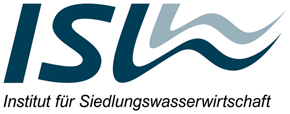

4. Internationales Symposium 6. und 7. November 2013, Tagungsband
Quality, Reuse, Global Aspects
The main themes of the 4th International Symposium "Re-Water Braunschweig" are "Quality, Reuse, Global Aspects". These aspects are closely linked to each other - globally, the reuse of treated wastewater is a promising strategy to cope with water shortage and to protect resources. Within this context, "hygiene" always plays an important role, especially with regard to the reuse of water in agriculture. "Global aspects" are also addressed in various presentations focusing on (possible) future developments and on the transition processes within the field of sanitary and environmental engineering. Corresponding to the title of the symposium, it also addresses the newest developments within the field of nutrient recycling on a regular basis. This year, special attention is paid on the link between nutrient recovery and nutrient reuse in agriculture and industry.
The symposium is organised by the "Stadtentwässerung Braunschweig GmbH". Cooperation partners are the Institute of Sanitary and Environmental Engineering of the TU Braunschweig, the Berlin Centre of Competence for Water and the "Abwasserverband Braunschweig". Further information and a detailed timetable under www.re-water.de.
Table of content
Jörg Londong et al,
Greywater (re)use options in a German urban context - necessities, challenges, barriers
Björn Vinnerås, Annika Nordin,
Appropriate technologies for the production of hygienic safe sewage sludge and fertilizers
Huu Hao Hgo et al,
Conceptual principle for development of new end uses in recycled water schemes
Lukas Egle et al,
(Comparative) technical, environmental and economic assessment of phosphorus recycling technologies from waste water
C.P. Langeveld, K.W. ten Wolde,
Phosphate recycling in mineral fertilizer production
Rainer Schnee et al,
The Budenheim Carbonic Acid Process: An environment friendly process for recovering phosphates from sewage sludge
Carsten Meyer et al,
Phosphate recovery from wastewater with engineered superparamagnetic composite particles using magnetic separation
János Stadler,
The LIGNIMIX technology for stabilization of municipal sewage sludge and liquid manure
Timo Pittmann, Heidrun Steinmetz,
Production of bioplastic on a municipal waste water treatment plant
Müfit Bahadir,
EXCEED and EMPOWER Tunisia: Two international networks for capacity building and research on water reuse
Wolfgang Seis,
Risk Assessment of the wastewater reuse system of Braunschweig
Bernhard Teiser,
The Braunschweig Model: Utilisation of cleared wastewater in agriculture for the purpose of preserving ground water reservoirs
Florian Wode et al,
Non-potable water reuse for landscape irrigation in Berlin, Germany
Béla Tolnai,
Chapters from the topic of biological filtration and application
Johannes Wittmann,
Hope from sewage? Phages as an alternative to antibiotics
Xin Wu,
Elimination of Microcystin-LR and selected pharmaceutical residuals using biologically active filters
Daniel Klein,
Options for the use of recovered N- and P-fertiliser in agriculture
